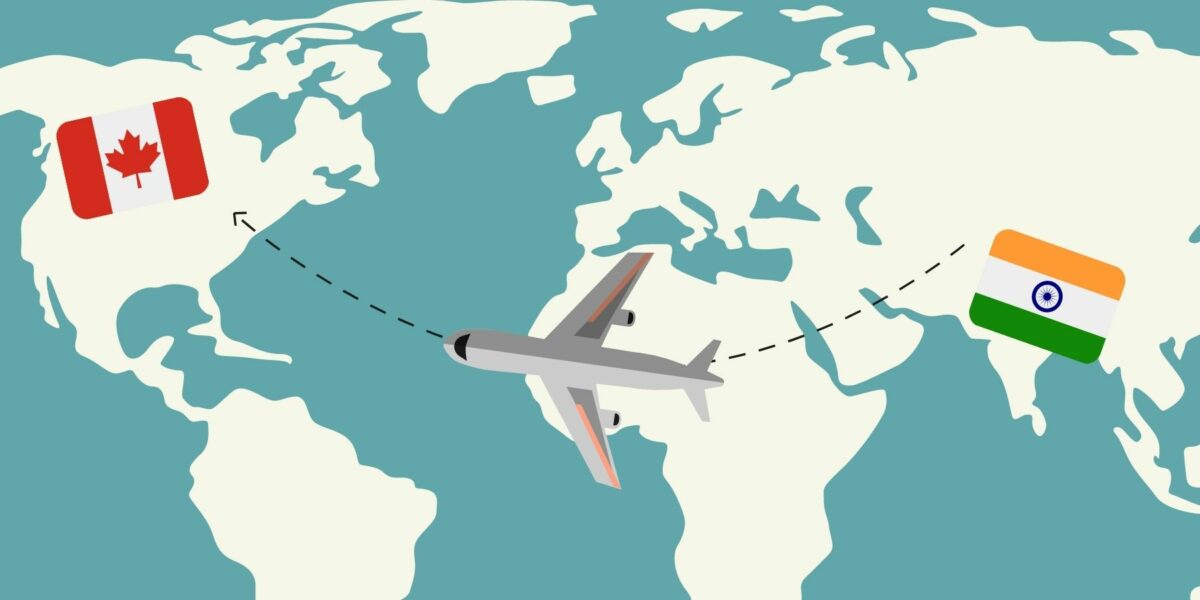Students forced to pay up to $7 000 to get to Canada

Direct flights from India to Canada have been banned by the Canadian government for over five months. On Aug. 9, Canada extended the ban to Sept. 21. With the ban in place, international students from India have had to scramble to get to Canada for their in-person classes.
The Government of Canada says these students can come to Canada as essential travellers and can be vaccinated in Canada if they are not already. However, they have to take indirect routes.
“I have to go to the third country, pay for the test, and also pay for the hotel [which is] really expensive … so yes, it is really very disappointing,” said Saakshi Bundeliya, a Thompson Rivers University student from India trying to return to Canada for school, told the Martlet.
Indian students want to get to Canada but the ban on direct flights has put them at the mercy of the high costs, stressful decisions, and indirect routes.
Indirect flights and COVID-19 tests
Indian students have to tackle two challenges: they have to book an indirect flight to Canada and they have to get a PCR COVID-19 test in a country other than India or Canada.
These challenges come at a cost. Indirect flights can cost two to three times more than a typical direct flight. The COVID-19 test requirement also means that students have to book a stay in another country for a few days while they wait for their results.
Students can get indirect flights that stop in countries like Mexico, Germany, Qatar, Serbia, the United Arab Emirates (UAE), and Maldives. But they have to book a flight that allows them to stop over for a few days and get that PCR test before they travel to Canada.
Students are worried that each stop, however, increases their risk of exposure to COVID-19.
“During COVID, you just want to travel directly to Canada, but then travelling via a third country is also risking the life of the student,” said Bundeliya.
Inflated prices
Aside from the logistical challenges, international students are facing expensive journeys to Canada. Including the cost of flights, the stay in a third country, and the cost of a PCR test, some Indian students are paying up to $7 000 CAD.
“I am planning to come back on [Sept. 10], so I already booked my flight, but it was really expensive. It was around $4 000-$5 000 CAD,” said Bundeliya.
Emirates Airlines is selling tickets from India to Canada between $1 500 to $6 000 CAD one way. Flight tickets cost much less if individuals purchase them months prior to the flight. However, this was not an option for Indian students, because they were waiting to find out whether the direct flight ban would be lifted before the fall semester.
In some countries, a PCR test is free. This is the case in Dubai, UAE, slightly lessening the financial burden for Indian students. In other countries, PCR tests can cost hundreds of dollars.
Difficult times for Indian international students
The high costs and unfamiliar routes faced by many Indian students has made them and their parents exasperated and apprehensive.
Bundeliya says her parents were quite anxious when the direct flight ban between India and Canada was extended — bringing doubts into their minds whether their daughter would be able to travel to Canada or not.
An Indian student interviewed by News 1130 argued the travel ban is discriminatory. Fully vaccinated Americans — and, as of Sept. 7, residents of other countries — are allowed to travel to Canada for non-essential purposes. Meanwhile, fully vaccinated Indian students are not allowed to enter Canada directly.
According to 2018 data, UVic has 143 undergraduate and 129 graduate Indian students on a study permit. It’s unlikely that many students will be able to travel to Canada, mainly due to travel restrictions and the high cost of indirect flights — so they have no other option but to take online classes. However, UVic is offering limited online courses — about 100 of them.
“I had a few friends who really wanted to go back because it was their last semester, but they couldn’t go so they had to skip the fall semester. They usually can’t afford these expensive [indirect] flights,” said Bundeliya.






